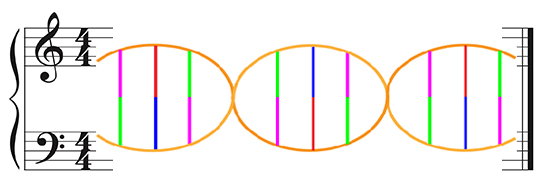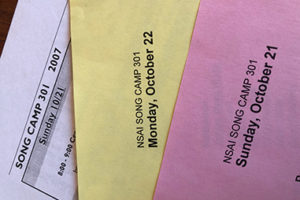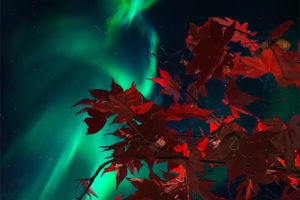Composition or Songwriting? . . . or both?
“. . . the artist must accept his innate gift as it is, and proceed from there
to make the most that he can of it.”
— Ross Lee Finney (1906-1997) American composer and teacher
I am not one of those people who stood on the table and sang at the age of five nor did I write my first song at ten. I wrote my first song in December of 2006 when I was forty-nine years old. And, even though I have sung in choirs since high school, I have never sung much as a soloist.
I am a classically trained musician with a degree in organ performance and a master’s degree in music composition. I have spent my life as a church musician. In 2006 I decided to try songwriting. It has been the most wonderful adventure of my life.
During 2007 and 2008 I attended NSAI (Nashville Songwriters Association International) song camps in Nashville, the NSAI Symposium, and songwriting workshops with Jason Blume. In June 2007, I traveled to the Blue Ridge Song Camp in Virginia led by Paul Reisler. During that time I also began studying voice with Ron Browning in Nashville. He teaches privately and with the Nashville Jazz Workshop. These experiences not only shaped my songwriting, but completely changed my life.
Beginning . . .
The following essay, written in November 2006, describes how I began the journey of finding my life’s passion/purpose—composing music. At the time I wrote it, I did not realize my path would include songwriting and, eventually, singing and performing my songs. The professor mentioned in the essay is Ross Lee Finney. He came to The University of Alabama as the endowed chair in music during the 1982-1983 school year. Ross Lee Finney was awarded the Guggenheim and Pulitzer fellowships in 1937 and won a second Guggenheim Fellowship in 1947. He is considered to have been one of the greatest composition teachers in the United States.
While Ross Lee Finney was at The University of Alabama, he taught a composition class for non-composers. My (now) husband, Gary, talked me into taking the class. I remember one day Finney brought his guitar. He sat on the piano bench and pulled out his guitar and sang “Bury Me Not on the Lone Prairie.” It seemed like an odd thing to do. This famous composer, who was known for writing complex, classical music based on hexachords, was playing a simple folksong. That scene haunted me through the years. I did not know how to understand that moment or what he was trying to teach us. In retrospect I realize the importance he placed on our American heritage of folk music and melody.
I have come full circle since Ross Lee Finney’s class. Nothing seems quite as natural as pulling out an instrument and singing whatever emotion or story is in your heart. That is what songwriting in its essence is about—expressing through words and music a story or personal truth. Since I began writing songs, I have been mesmerized by the sheer simplicity (though not simple-mindedness) of this form of music. I have been completely captivated during every class and every concert I attended in Nashville. I have seen a room of three hundred people moved to tears by a songwriter and a guitar.
Jimmy Buffett says . . .
A great song is more than just words and music. It’s like a thumb pressing against the pulse of living that relates a simple truth about a very complicated process.
— Jimmy Buffett (b. 1946) American singer, songwriter, musician, author,
actor, and businessman
Before my thyroid surgery on September 7, 2006 I decided to spend the time during my recuperation discovering my passion/purpose in life. I had asked this question hundreds of times. I had asked it for years. Perhaps I already knew the answer? Why would this time be different?
For ten months, my husband and I had been totally consumed with selling our house and getting ready to move to a new city. We remodeled the house in our new city, then relocated, and unpacked everything. Our days were long and the work was physically and emotionally exhausting. In August, just as we got into our new house, it became apparent that I would need surgery, I thought, “What else can I endure? Why now?” After I accepted the fact that I would have surgery and the world would not come to an end because I could not work for several weeks, I began looking forward to this as a time to relax and contemplate life. I needed the physical rest and needed emotional and spiritual rejuvenation. I resolved that by the end of my recuperation, I would have a clear understanding of my passion/purpose.
Searching . . .
At my age, one cannot enter this quest without already having clues to the answer. Perhaps the challenge lies in accepting the answer and finding the resolve to make pursuing your passion a reality. The internet is where I began my search. There I found advice from others who had also searched for their life’s passion. Two simple questions caught my attention, “What would I wish that I had done if I died tomorrow?” and “What am I doing when I find myself the happiest?”
At first glance these questions may seem selfish or even hedonistic. I do not believe they are. The answers provide important clues to our innate talents and personality traits. If I died tomorrow, I would wish that I had done those things that only I could do. If I did not do this, I would fail to reach my potential. In 1983, simply by happenstance (well, of course it was providence) I took a music composition class. At the end, the professor said I should keep composing. That led me to pursue my master’s degree in music composition. Following that, life got busy and I composed only sporadically. In answer to the question, “When am I the happiest?” In thinking back through the years, I realized that I was most content when I was being creative in some way. Then why hadn’t I always delved headlong into artistic endeavors?
During my recuperation, a turning point came when I realized that at the end of my life, I would not be asked, “Why were you not ________?” (fill in the blank with any famous person’s name) But instead, “Why were you not Peg?” It is easy to tell ourselves that because we are not as talented or successful as someone else that it is not worth our effort to create. It can often become simply we are not good enough. Regardless of my feelings, I knew that every creative person has a very personal and unique art—comparison or criticism is not the goal. A friend told me that it is simply an artist’s job to create and not to think about the outcome. That sentence made a huge difference in my outlook—it freed me to just be myself.
Discovery . . .
I also discovered that cultivating my creativity is intimately related to my spiritual development. Thomas Merton in his book, New Seeds of Contemplation, said, “Our vocation is not simply to be, but to work together with God in the creation of our own life, our own identity, our own destiny.” Our life journey is inevitably one of discovery and development. How simple it is for us to become complacent. How easy it is for us to crumble beneath life’s pressures. By neglecting my talent, I had been ignoring (basically denying) my very essence. I did not choose my passion/purpose—this urge to create, the love of music, and my desire to compose—it is part of my DNA.
To fulfill my passion/purpose in life I began composing regularly. I took small baby steps. My first projects were to compose introits and benedictions for my church choir.
Why is my story important? —because it is also your story. The details are different. Your passion/purpose is probably not the same as mine. What is the same—is our individual search for ourselves . . . to become who we are meant to be. The telling of my story and artistic endeavors is an expression of humanity. Jimmy Buffet says it this way, “A great song is more than just words and music. It’s like a thumb pressing against the pulse of living that relates a simple truth about a very complicated process.”
The Journey Continues . . .
Next, I look to expand my creativity endeavors by exploring songwriting in Part 2 of my Songwriting Journey.
§
What activities fill you with passion and energy?










Leave a Reply
Your email is safe with us.